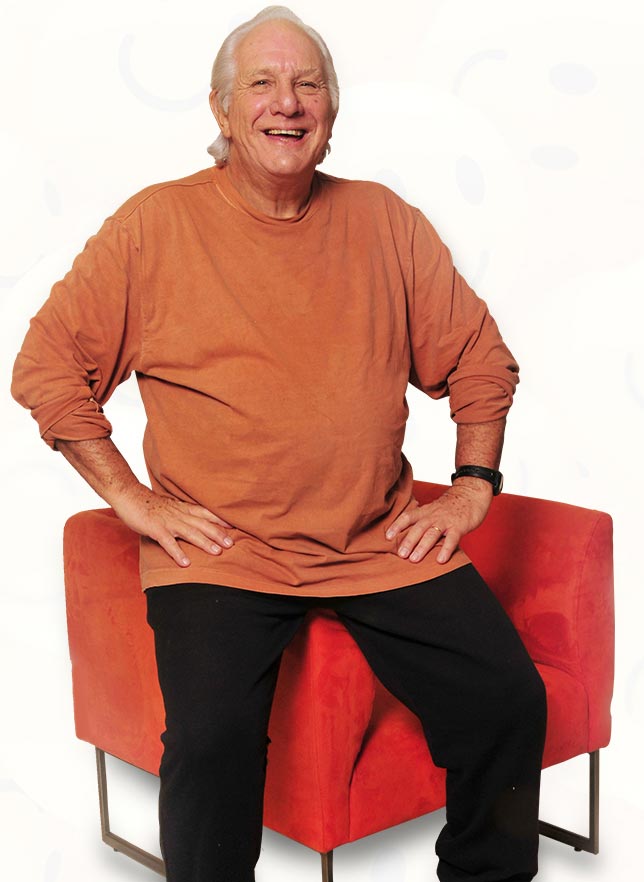
The Art of Accepting Others Where They Are
Hi. This Lenny Ravich, sometimes known as the world’s guru of optimism and at 86, one of one Hong Kong’s and London’s leading Humorous Motivational Speakers. I had to wait this long to earn the title. Like an overnight success, right? As a communicator I have some experiences to share with you during my life’s journey. Interested? I don’t care. Let’s get started anyway.
Start from the known.
There is an old adage in the field of education: “Start from the known and proceed to the unknown.”
Professional communicators are cognizant of the fact that you cannot meet people where they are not. They instinctively understand that they must find a common ground with which to proceed in their relationships. They pick up on energy levels, voice tone, alteration in skin color changes and body language to mirror back to the other so as to invite them to feel safe, comfortable, secure and confirmed.
The Emotional Message
The secret of effective communication lies in the awareness of two types of relating. Most people concentrate on what a person is saying. That’s the content. However, it takes a sensitive leader to also notice the process or the way they are saying it. To put it another way, what is the emotional message? As a Motivational and Humorous Speaker in Hong Kong and London it, is vitally important that I pick up on these messages from my audiences.
Building Communication Bridges
When we can latch onto the emotional meaning during our conversations, we are offering an additional focus. It’s almost as if I am speaking Chinese and someone else is speaking Greek. There is no bridge. But if the person speaking Chinese is met in her language, she is thrilled to find someone who “speaks my language,” as the term goes.
If someone is a golf enthusiast, even if the listener has never played the game, she will show interest by asking questions and finding ways to build a bridge to the golf fan. This delights the golfer (she actually lights up) by having the center of attention and the space to talk about her favorite pastime.
The most powerful tool the outstanding leader possesses is the ability to meet people where they are on an emotional as well as on an intellectual level. This sincere listener will have no expectations, no judgments, no comparisons and no criticisms. She will make sure that she is a blessing to all she meets by accepting unconditionally the “what is” of the other.
Me, As a High School Teacher
I came to Birmingham, Alabama as a married man with two young boys. This was in 1967 and the United States Court had ordered the end of segregation in Alabama schools. Since I am Caucasian, I was offered a high school teaching position at which had been, up until that time, an all-African-American school. My subject was English.
I tried to introduce essays and poetry but was met with despondence and lack of interest. I wondered what I was doing wrong. Today I know that it was being insensitive to another peoples’ culture. I was trying to reach them with material that was totally foreign to them.
Meeting Others Where They Are
On my way driving to work one day, I happened to catch an African-American radio station that was playing a song, “I wish it Would Rain”.
I entered the class with a whole new mindset. I asked, “Who can tell me what the song, ‘I wish it Would Rain’ means?’”
Hands shot up and I suddenly witnessed a passion in the atmosphere that had been absent from my first day.
“Mr. Ravich, you see this guy just broke up with his girlfriend and he’s crying and he doesn’t want other folks to know, so he wishes it would rain so they wouldn’t see his tears.” Other hands were raised and discussions ensued concerning men’s emotions and how they are generally expressed as opposed to women’s.
From that day on I made sure I listened to more songs on that and other radio stations and brought them to class for dialogue. That’s why, as a Humorous, Motivational Speaker in Hong Kong and London, I am constantly reading and asking questions on current events in that part of the world.
Intimate Communication Demands Trust
My students and I felt closer and I sensed their appreciation for my trying to understand where they were coming from. After that it was much easier to introduce William Wordsworth and even Shakespeare to their learning activities. We all had confidence in each other simply because I had agreed to meet them where they were and then, from there, to continue to what had been previously unknown to them. This fosters trust.
Me, as a Father:
My then 15-year-old daughter asked if she could talk to me. We sat down and she began, “I’m so fat and ugly, nobody wants to be friends with me.”
Sensing her despair, I said, “Orite. Are you kidding? You’re gorgeous, you have beautiful eyes…” and before I could add another world she said, “Shut up and listen. Don’t interrupt me.”
I sat there in stony silence while she raged on about her ugliness, her disgusting behavior and her desire to end her life.
The Greatest Gift
Of course, for a father to hear these horrible things from his daughter is no easy task. But I promised not to interrupt and listened for twenty agonizing minutes. At the end, she wiped her tears and said, “Thanks for being here for me. Can I have a hug?”
I learned a great lesson from my daughter that day. By respecting her request to simply listen, in empathy and love, without advice, criticism, or judgement, I had allowed her to be heard and confirmed. The greatest gift was to be present for her when she needed me.
We sometimes forget that accepting others for who they are and where they are is the paramount talent we can offer as skilled communicators and leaders.
Are you ready to communicate on the two levels: emotional and content based? Are you willing to meet and accept others for who they are and where they are emotionally, intellectually and spiritually?
Let’s stay in touch.
